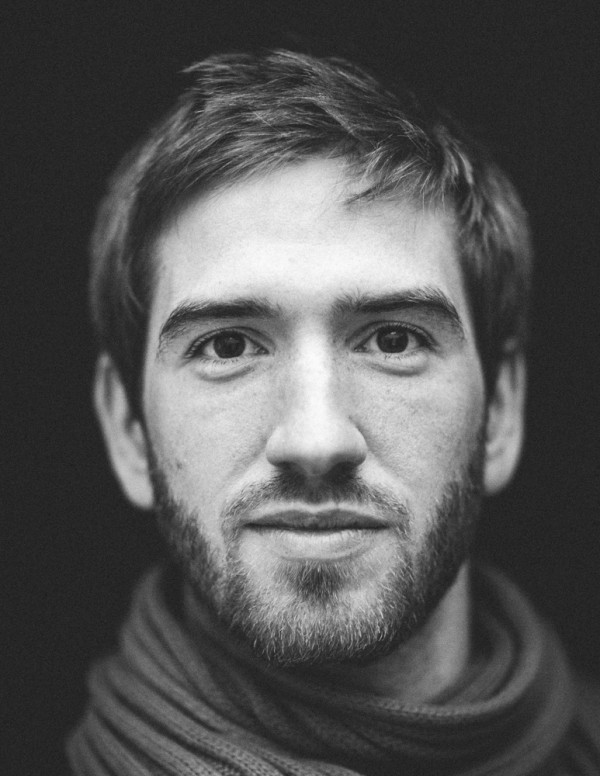Resolute Support for Camp Shaheen
Resolute Support for Camp Shaheen
Jonas Wresch
March 7, 2018
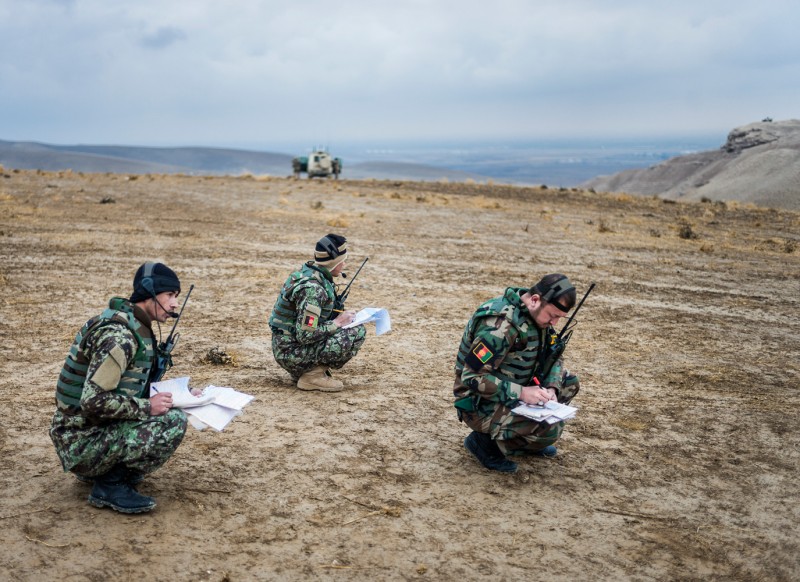
Afghan soldiers during an exercise
Jonas Wresch: What you’re seeing are Afghan soldiers learning to find targets on a map and communicate the coordinates to a helicopter. Many of the soldiers are so poorly trained, they have to be shown how to properly use a map and compass. I felt that the way they’re crouching, slightly disorientated, in the middle of nowhere, symbolised this situation.
Next we see a band of German soldiers. What can you tell us about this image?
The picture was taken at the camp’s Sunday church service. I definitely found it bewildering that so little connection was being made between being a soldier who takes people’s lives, and the concept of Christian love.
Did you have contact with any of the locals?
Barely, because the camps are cut off from the outside world. One time we sat in a huge, armoured vehicle and a soldier explained the target mechanism to me, by means of a human figure shown in the reticle. As we got closer, I saw it was a shepherd boy, tentatively waving at us (editor’s note: last image).
How would you describe the atmosphere in the camp?
Being a visitor, it was almost a bit like staying on a cruise ship – you’re stranded in a microcosm, and three times a day you get an ‘all-you-can-eat’ buffet. And yet, beyond the confines of the camp is a raging storm that the local population has to navigate.
Are there any particular security measures that have been put in place?
In March 2017, there was a severe Taliban attack on the camp that killed 140 soldiers. So now the Europeans have to be heavily armed and accompanied by three ‘Guardian Angels’ whenever they enter their training partners’ camp – essentially treating it as enemy territory.
Were you given any stipulations by the German Armed Forces?
Our protagonist was chosen by the German Armed Forces, but he talked to us very openly. I was also free to photograph anyone without the need for an image release, seeing as we didn’t publish any names.
What made you decide to shoot this assignment with the Leica Q?
I wanted to bring this camera because it is both flexible and super lightweight – allowing for a very direct and intuitive way of working. I also had the Leica M with me, for the simple reason that for certain scenes, I really need a 50mm lens.
Jonas Wresch+-
Jonas Wresch was born in Bad Dürkheim, Germany, in 1988. After finishing his A-levels in 2007, he completed a six-month internship at the Frankfurter Allgemeine Zeitung.
In 2015 he completed his studies in photojournalism and documentary photography at the Hanover University of Applied Sciences. His work has been exhibited at various festivals around the world. Wresch is a member of the Agentur Focus photo agency. He received the Freelens Award in 2016, as well as the STERN Grant scholarship award from July
2016 to June 2017. More

Afghan soldiers during an exercise
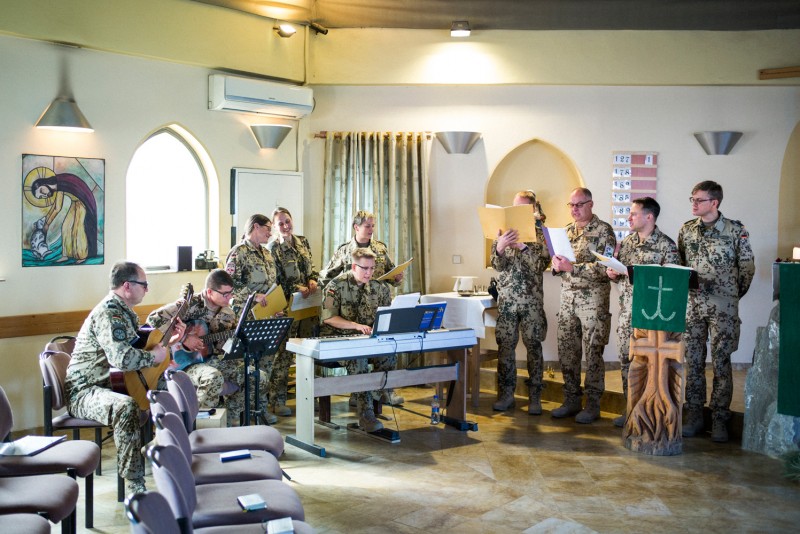
German choir at the camp worship
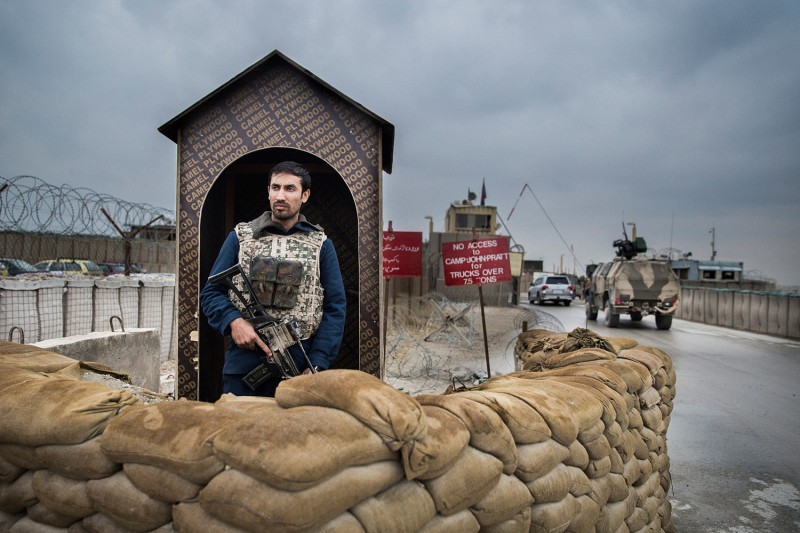
Afghan soldier in front of the camp
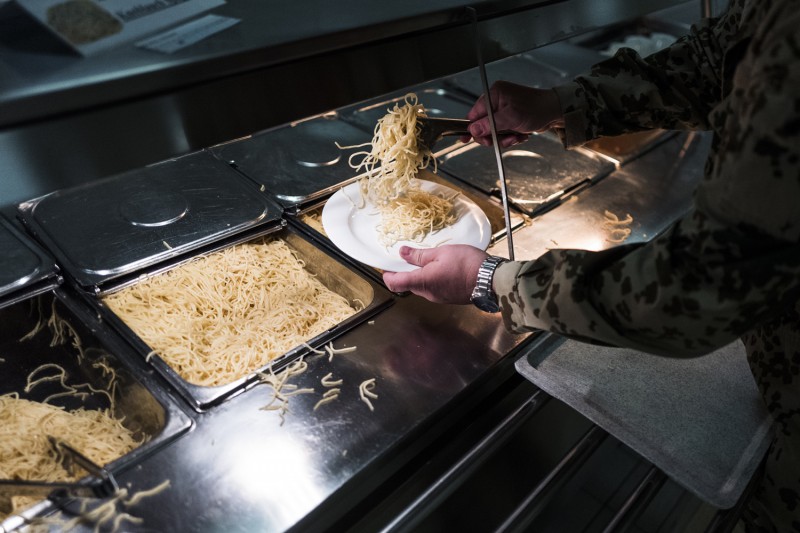
Three times a day "All you can eat"
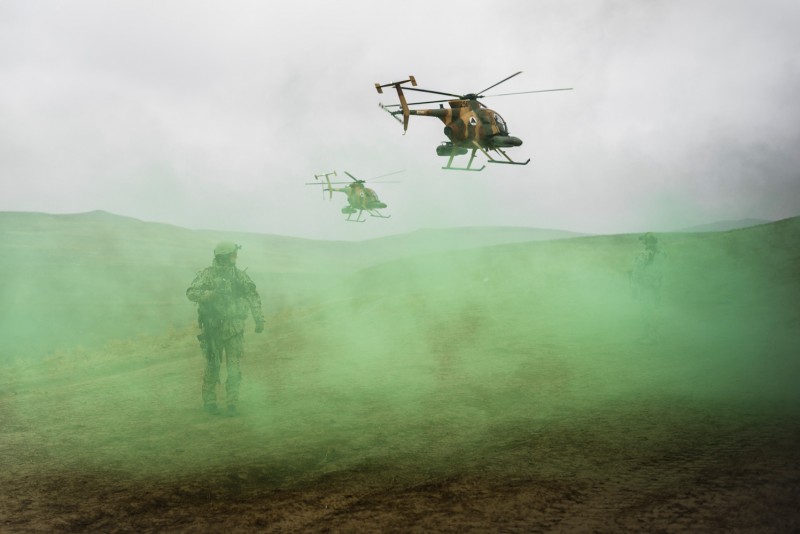
Helicopter training
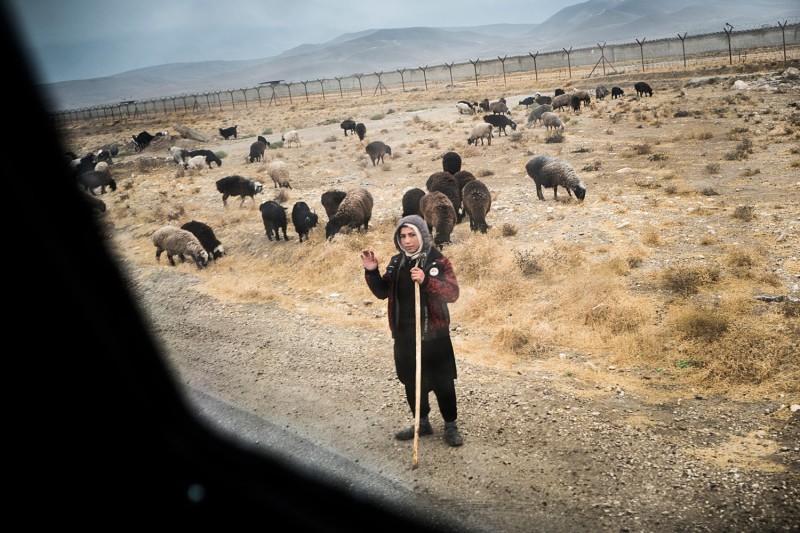
Afghan shepherd
